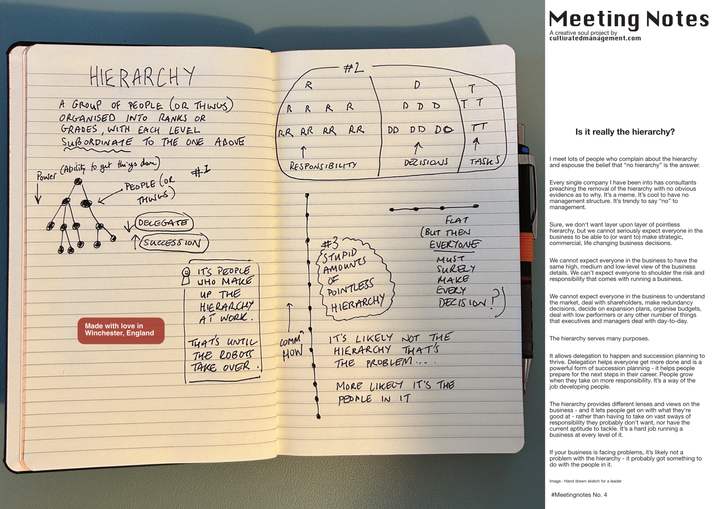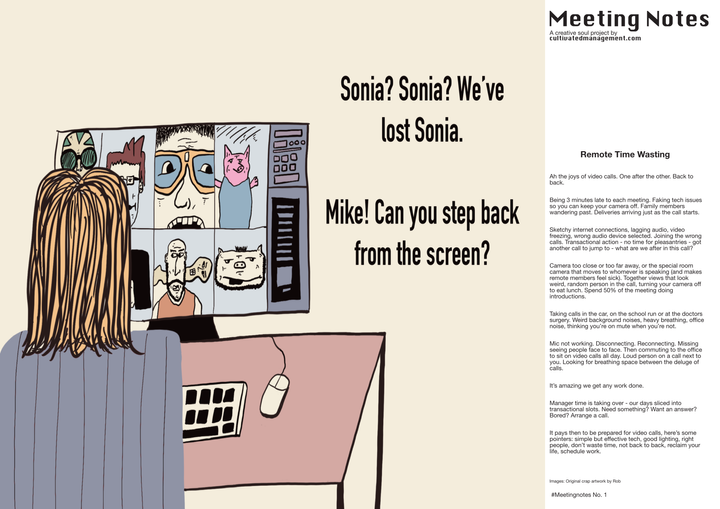Is this the team to get it done? A single powerful question to ask

One of the most obvious observations (and challenges) I face when working with leaders and managers (and coaching them), is the perennial problem of dealing with low performance of some employees.
It’s really common for managers to simply move low performing people around the business, further away from any important work.
I spoke with someone at a conference recently who saw this first hand. What was funny (and tragic) about his story, was that the low performing person ended up running their own department (of one person – themselves) as the managers didn’t know what to do with him.
I’ve seen entire teams being built of employees that managers don’t want in their teams, and then work “found” for them to do. Talk about workplace economics.
But to cover the economics side of this debacle is to cover only one angle – and the most obvious. You have costs from employees racking up and very little return. It’s a shambles but it happens often.
The other angle to look at is fairness. Fairness to three different parties.
Fairness – to the low performing employee
The first is considering whether this is fair to the employee who is deemed to be underperforming.
It’s an ethical question and one that most managers don’t want to lean into. Is it fair that they have likely never been spoken to about their performance? (I don’t think so).
Is it fair that they are given less important work to do and hidden away? Is it fair to deny them the opportunity to grow? Is it fair to squander their life energy and time doing unimportant work? Maybe? Maybe not?
In my experience, it’s often the case that nobody has ever talked to them about their performance. Managers have never sat down and told them what they expect from them – and where they are behaviourally against this benchmark. Instead of having that tough conversation they simply move people around.
It’s often the case that HR are consulted and their response rightly, without any conversations with the employee about performance from the manager, is that they cannot really do much. And of course, the dreaded Employee Engagement survey trend has a lot to do with this.
“We can’t do anything to upset anyone as it will affect our engagement survey results”.
But consider that in one company I worked in, the team full of low performers had the highest engagement survey results. They were happy and engaged because they had easy work to do, nobody bothered them and they had a lot of fun doing unimportant work. But they weren’t adding much value to the business.
Fairness – to investors, shareholders and customers
Secondly, is it fair to the investors, shareholders and customers to carry the financial (and time) burden of low performers within the business?
The money for salaries and staff cost has to come from somewhere. If investors and shareholders could see what was happening inside a company, what would they say?
Almost every company has some form of HR/Finance measures relating to profit per employee. Whether you know that, and have seen it, doesn’t mask the fact someone in HR or Finance is working this out. And when other employees are carrying the numbers it is altogether a very unfair situation.
There’s a general belief that 20% of the workforce generate most of the value in a business. I’d say that’s probably the case in many companies. But it doesn’t have to be this way.
Fairness – to the wider team
Thirdly, is it fair on other employees to carry the extra work burden, or to work with people who aren’t performing well? I don’t think it is.
I often say that people leave a company (and manager) that doesn’t deal with low performance.
When you’re at the top of your game and having to share the outcomes, joy, results and praise with people who don’t pull their weight, it can have a very deleterious effect on your own happiness and commitment.
Dealing with low performance is not overly complicated but it does require a benchmark of high performance being articulated, then opportunities for people to rise to the bar, and sometimes some hard conversations.
In my experience, when I inherit a low performer, they turn out to be very capable indeed. It’s often just the case that nobody has ever spoken to them about performance and behaviours, or done any coaching with them. They often move through their daily work not realising they are seen as underperforming.
If managers do the right thing and give feedback, ask for better behaviours and coach people, and the employee still can’t make the high bar, then the right thing to do for the business, for the wider team, and ironically, for the low performer, is to work with HR to exit someone from the business.
But this shouldn’t be done without proper care, consideration, thought and empathy. This is a decision that needs care and respect. At the end of that path is someone’s income, mortgage, family and esteem. It should not be done lightly, and is a significant failure of the entire business (recruitment, induction, care, clarity, feedback and management). We got something wrong if we have to do this, but we should if we’ve explored other routes.
When I work with leaders and managers facing this problem (and trying to bring a strategy to life), I ask them a simple but powerful question.
“With your hand on your heart, look around your team. Can you honestly say that this is the team to get it done?”.
If you can say yes – well done (or you’re avoiding the hard answer). If not, what are you doing about it?
I’ve yet to encounter a leader, who, when being truthful, can answer that question with a 100% yes.
Coaching plans, training, support, clarity, alignment and care all come into this question. It may not be the team just yet, but we’re working on it….. perfect.
Is this the team to get it done? A powerful question to consider.



